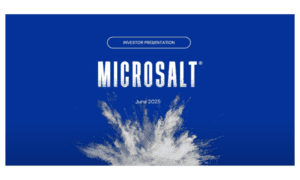Living with, mitigating, or even avoiding diabetic and pancreatic complications is easier with a low-sodium lifestyle.
Key takeaways:
- Excess sodium intake is linked to chronic conditions that can lead to diabetes and pancreatic cancer.
- People in the Black/African American community have a higher risk of developing those two conditions.
- Reducing the amount of sodium in your daily diet can help with diabetes prevention and pancreatic issues.
The amount of sodium we eat can profoundly affect our health in numerous ways. Unfortunately, the average American consumes 3,400 mg of sodium daily – way over the suggested maximum of 2,300 mg and more than double the ideal amount of 1,500 mg recommended by the American Heart Association (AHA).
The heart is one of the first organs to suffer from a high-salt diet, which can lead to cardiovascular complications, hypertension (high blood pressure), and stroke. One of the high sodium lifestyle’s other negative effects is the exacerbation of diabetes, which can be directly linked to poor heart health. And members of the Black/African American community can be particularly vulnerable in this regard for genetic and lifestyle reasons.
Here’s a look at how a low-sodium diet can benefit people with diabetes and other conditions. Always remember to consult a doctor about the right amount of daily sodium for you.
Diabetes, sodium, and the pancreas
We touched on how diabetes is affected by excessive sodium intake in the first blog of our two-part series on the physical and mental impact of salt. But in short, people with hypertension are already at elevated risk of developing diabetes, and prediabetics and diabetics who eat too much salt can increase their risk of developing hypertension.
Dr. Tricia Pingel, author of Total Health Turnaround, has highlighted several troubling statistics relating to the diabetes/sodium connection. She says that studies have shown salt-rich diets to be a precursor to type 2 diabetes, while those who consume more than 3.15 grams of sodium per day (3,150 mg) had a 58% chance of developing diabetes. This means that most Americans should take diabetes prevention very seriously since we tend to eat that amount of salt – or more – every day.
Along with other health complications, diabetes can endanger the pancreas. Studies have shown that people with type 2 diabetes can be up to three times more likely to develop pancreatitis, which can lead to pancreatic cancer. Both diabetes and pancreatitis share similar risk factors such as obesity and poor diet. For some populations, genetics add another layer of risk.
Why the Black/African American community faces a pronounced risk
Socio-economic factors that lead to poor diets and reduced access to affordable medical care are two disparities at the heart of Black/African American health struggles in the United States. These problems put this community at greater risk of suffering from all diseases, from prediabetes and diabetes to pancreas issues and beyond.
Research by The Brookings Institution found that Black/African Americans are not only less likely to move up the wealth ladder but are more likely to slide down it. Large gaps in race-based income only widen over lifetimes, making it harder for Black/African Americans to afford health care in their later years when it’s typically needed most.
This wealth imbalance is further confirmed by the latest weekly earnings figures from the Bureau of Labor Statistics (BLS). Financial struggles affect the Black/African American community’s ability to buy healthier foods, forcing them like many other Americans to primarily consume processed and pre-packaged foods. Such options are already the source of around 70% of the sodium in the average diet and can lead to obesity – and ultimately, diabetes.
Then there’s the genetic factor. Black/African Americans are naturally more prone to hypertension (another potential gateway to diabetes). Some 55% of African American adults suffer from high blood pressure, while this community also exhibits disproportionately high levels of obesity and diabetes according to AHA data.
Incidents of pancreatic cancer are also higher in this community than in any other racial group in the nation, with 15.9 out of every 100,000 Black/African Americans developing this disease as compared to 11.0 out of every 100,000 white Americans. Diabetes is also associated with pancreatic cancer, putting the African American population at even higher risk.
These areas of heightened vulnerability combined with a higher degree of salt sensitivity mean that most Black/African Americans would likely benefit from adopting a low-sodium lifestyle in conjunction with professional medical advice.
How a low-sodium diet can help
Low-sodium living can be full of delicious, nutritious foods. The DASH diet is a perfect example of a medically favored plan that’s a big hit with the public. We also compiled our own list of 11 low-sodium snacks that can complement healthier staple choices like fresh or frozen fish, lean meats, and unprocessed fruits and vegetables.
Less salt in your life means less pressure on your kidneys, heart, and cardiovascular system while also aiding in preventing or managing hypertension as a means of avoiding diabetes. Since most foods high in sodium are also high in calories, avoiding them reduces the chances of unwanted body weight and obesity, which can also lower diabetes risk and protect the pancreas.
The National Pancreas Foundation (NPF) is at the forefront of initiatives designed to generate greater awareness of the dangers of pancreatitis and pancreatic cancer among the Black/African American community. Their 36-page guide is a textual/audio/visual resource full of helpful information on risk factors, signs and symptoms, and living with pancreatic issues.
Make MicroSalt® part of your healthier lifestyle
There’s one unifier across all demographics: we all love salt! That’s why we’ve created SaltMe!® chips for snacking, and MicroSalt® shakers to make mealtimes at home safe and tasty. These revolutionary, lower-sodium products are possible through the MicroSalt® ingredient, which isn’t a harmful salt substitute with a bitter aftertaste. It’s all-natural salt with twice the flavor of traditional crystals for only half the sodium.
MicroSalt® makes it easier to enjoy sodium responsibly. We want everyone in America and around the world to lead healthier, happier lives through better dietary choices and safely reduced sodium intake. Call us at 1-877-825-0655 or connect via our message page to learn more about our award-winning mission.




